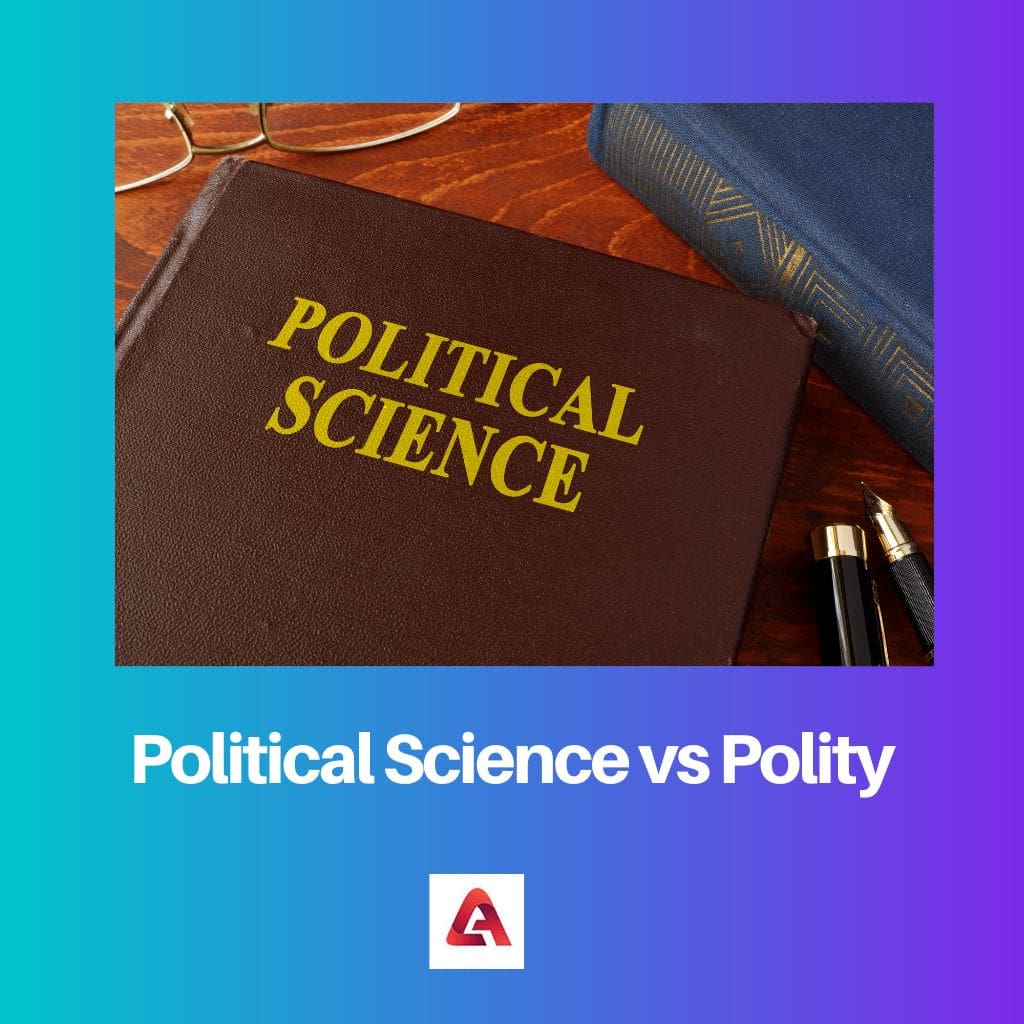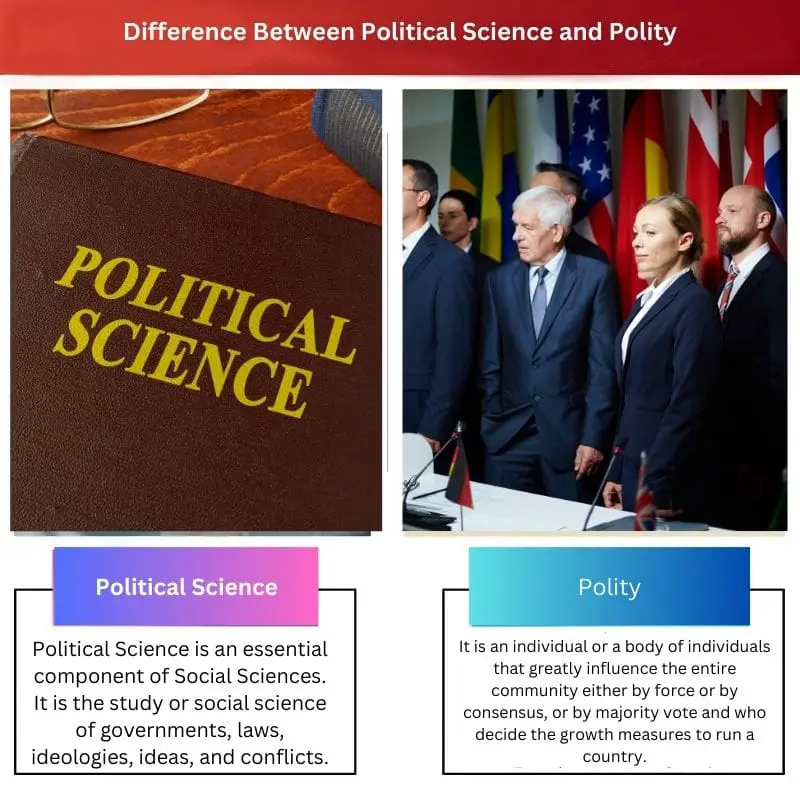When human relationships became complex, and various leaders and thinkers started exercising their influence on people and society, structures and frameworks were developed to overcome the loopholes.
The terms Political Science and Polity are manufactured by these complex structures and theories for civilized society. Both are interrelated and far apart when initial and original definitions are evaluated.
Key Takeaways
- Political science is the academic discipline that studies the theory, practice, and systems of government, politics, and public policy. At the same time, polity refers to a specific form of government or the organizational structure of a political entity.
- Political science uses empirical and theoretical methods to analyze political phenomena, institutions, and behavior. In contrast, the polity is a term used to describe the characteristics of a particular government or political organization.
- Political science encompasses various subfields, such as comparative politics, international relations, and political theory. At the same time, polity is a descriptive term that can be applied to different political systems and organizations.
Political Science vs Polity
The difference between Political Science and Polity is that Political Science is the study, research, and reconsideration of existing notions of political power, right, and responsibilities. At the same time, the polity is the system of government itself that would work towards framing and implementing policies and strategies to achieve goals of national development, peace, and security.

Comparison Table
| Parameter of Comparison | Political Science | Polity |
|---|---|---|
| Definition | It studies various political ideas, thoughts, and affiliations to work out policies. | The governing body puts political theories and philosophies into work. |
| Need | The need arises due to the demand for a polished society and accountable administration. Basic ideas are questioned and struggled with. | With human interactions becoming complex, the need to have a governing body arises to maintain peace and an accountable system to take decisions on the community’s or nation’s behalf. |
| Work input | A political scientist uses ongoing debates, discussions, surveys, and philosophies to create modified theories suitable for the present. | The inputs for governments are the works of political scientists. The governing body closely studies various political frameworks to find the best one. |
| Branches | It includes political economy, international relations, political theories, and comparative politics. | A Polity can be of different types, like an empire, a nation, a state, an organization, a corporate firm, or a share market. |
| Scope | The subject is both Social Science(in the study of behaviours) and Science (in the methodology of Research). It formulates theories based on research. | The polity formulates policies based on the research and analysis of political scientists. |
| Aim | A political scientist aims to question, research, empirically prove, modify, and re-research to reach conclusions and theories that can be used to formulate structures and policies. | The polity aims to adopt policies for maintaining peace and cooperation and to modify the policies whenever necessary. |
What is Political Science?
Political Science is an essential component of Social Sciences. It is the study or social science of governments, laws, ideologies, ideas, and conflicts.
It comes into sight when we have something to share the wealth, resources, pollution, influence, and water. Political Scientists examine every aspect of ideological affiliations, political skirmishes, governance, laws, diplomacy, external affairs, and political theories.
It is a social science as it studies the behaviours of humans when the need to share and some obligations arise. It is a science as the study method depends on thorough research, empirical evidence, modifications, and Re-research.
It has several branches:
- Political Theory: It involves working on concepts and theories that form the basis of a civilized society. Justice, Liberty, Freedom, Equality, etc., are covered under it. It involves analytical research, explanation and development of the political phenomenon worldwide and over time.
- Comparative Politics: It refers to the study of various governments, their policies, their behaviours, and alignments across nations. It involves a thorough comparison of development paths followed by countries.

What is Polity?
Polity refers to the system and mechanism governing a Community or a Nation. It is an individual or a body of individuals that greatly influence the entire community either by force or by consensus, or by majority vote and who decide the growth measures to run a country.
Institutionalized social rules and regulations of that political identity form a body of leaders. The entity may be a nation, a state, an empire, an international organization, an ethnic group, or a corporate.
It is concerned with the making and unmaking of government and constitution, the electoral system, conduct, and the division of power hierarchically and horizontally.

Main Differences Between Political Science and Polity
- Political Science studies political behaviours and phenomena through research and analysis to reach conclusions and form political theories and philosophies. At the same time, the polity is the governing body that uses the outputs of political scientists to work out public policy.
- Political Science is needed to answer endless questions and debates and analyse evidence closely. In contrast, the polity is needed to put political research into practice and to maintain social order.




